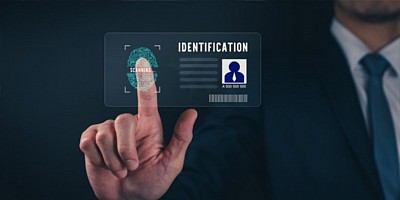Searhes and Verification of Individuals and Businesses
Individual Searches
Searches and verification processes are used to verify the identity, background, and qualifications of individuals, often for hiring, background checks, or other purposes. These processes can involve checking for criminal records, verifying educational credentials, or confirming the details of a vehicle or license.
Here's a more detailed breakdown:
Types of Verification:
• Identity Verification: This involves confirming the identity of an individual through documents like ID cards, passports, or other forms of identification.
• Criminal Record Checks: These checks, often using fingerprint analysis and the AFIS system, help identify potential criminal history.
• Background Checks: These checks may involve searching public records, social media, and other sources to gather information about an individual's past.
• Educational Verification: This verifies the authenticity of educational qualifications and credentials, often through databases like the National Learners' Records Database (NLRD).
• Credit Checks: These checks assess the creditworthiness of an individual or company.
• Licensing and Vehicle Ownership Checks: These checks confirm the validity of licenses and vehicle registration.
Why Verification is Important:
• Hiring Decisions:
Verification helps organizations make informed decisions about hiring, reducing the risk of hiring individuals with undesirable backgrounds.
• Compliance:
Many industries require background checks and verification as part of regulatory compliance.
• Safety and Integrity:
Verification helps ensure workplace safety and maintain the integrity of an organization.
• Protecting Vulnerable Individuals:
Verification is crucial in sectors working with children to prevent harm.
As well as the Safety of Relationships and Families
Business Searches
Business verification and "Know Your Business" (CIPC) checks are processes that confirm the legitimacy and compliance of a business, often involving verifying registration details, ownership, and other key information. This verification helps prevent fraud, money laundering, and other financial crimes.
Here's a more detailed look:
Why Business Verification is Important:
• Legitimacy Checks:
Verify that a business is a legitimate entity registered with the relevant authorities, preventing the use of fake or fraudulent businesses.
• Regulatory Compliance:
Ensure businesses comply with relevant regulations, including Anti-Money Laundering (AML) laws and other financial regulations.
• Fraud Prevention:
Help identify and prevent fraud, including money laundering and other financial crimes.
• Due Diligence:
Provide a layer of due diligence for businesses before engaging in transactions or partnerships, according to Experian.
• Risk Mitigation:
Reduce the risk of doing business with entities that may be associated with criminal activities.
What is Involved in Business Verification?
• Checking Registration Details:
Verify the business's registration with relevant authorities, such as the Companies and Intellectual Property Commission (CIPC).
• Verifying Ownership:
Identify and verify the beneficial owners of the business.
• Checking Financial Information:
Validate bank account details, tax identification numbers, and other financial information.
• Online Presence Verification:
Examine the business's online presence, including websites, social media pages, and online reviews.
• Background Checks:
Conduct background checks on the business and its owners to identify any potential red flags.




